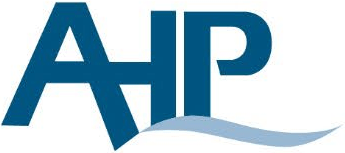
Working Recovery: Helping People in Recovery Find Jobs and Thrive at Work
Transitioning from addiction to recovery is a challenge that requires support for not only physical and mental health, but also social and emotional needs. If people in recovery are not supported holistically, an all-too-often outcome is recurrence. But there’s hope. According to the Substance Abuse and Mental Health Services Administration (SAMHSA), people battling substance use disorder (SUD) who gain and maintain employment have an overall improved quality of life, including a lower rate of recurrence.1 Advocates for Human Potential’s (AHP’s) Working Recovery offers states a program that works to keep people in recovery by addressing critical health-related social needs to help individuals in recovery live fulfilling and productive lives.
For over 35 years, AHP has been improving health and human services systems of care to help organizations and individuals reach their full potential. Let us help your state create a combination of wraparound services that empower people in recovery to find purpose, structure, and financial security, all while sustaining recovery.
Supporting Recovery from Employment to the Basics
Working Recovery prioritizes securing dignified employment with fair wages for individuals in early recovery, while empowering them to achieve stability in all other aspects of their lives. By providing stipends for basic needs, the program ensures participants can live while they learn, integrating comprehensive support services for holistic recovery and long-term success.
Working Recovery offers the following categories of support:
Career Support
- Job readiness
- Occupational skills training
- Stipends
Basic Needs
- IDs
- Transportation
- Cell phones
- Shopping for clothes and hygiene items
- Other essentials
Housing Support
- Rental search
- Housing subsidies and placement support
Peer Support
- One-to-one peer support services
- Connection to the recovery community
Care Coordination
- Referrals to services
- Enhanced employment support
- Community resource navigation
Supporting Meaningful Work
Working Recovery helps those in recovery find meaningful career opportunities and it supports financial independence. How? By actively participating in these career building services:
Paths to Empowerment (P2E) Job Readiness Program
In P2E, participants learn more than traditional job readiness skills such as resume development, online job searching, and how to prepare for an interview. They also learn how to address unique barriers they may face when entering the workforce, like having a criminal record or large gaps in employment history. This 3-week course, available in person and virtually, gives participants the tools they need to enter the workforce with confidence.
Occupational Skills Training
In this program, participants are introduced to job training opportunities in their area. We partner with local workforce development programs, creating a pipeline into job training programs. Job training programs are fully funded, and participants are offered stipends throughout programming.
Working Recovery in Your State
Working Recovery services enhance an individual’s ability to live and work in the community while focusing on their recovery. Our continuous quality improvements measure outcomes and update you throughout the partnership. Here’s the potential pathway for bringing Working Recovery to your state:
- The state dedicates flexible funds such as American Rescue Plan, State Opioid Response, or opioid settlement funds to support Working Recovery.
- AHP works collaboratively with the state to identify individuals who will benefit from Working Recovery services.
- AHP provides administrative services and tech assistance to community-based organizations (CBOs) serving clients in SUD recovery.
- Our Working Recovery team contracts with CBOs, provides training and protocols, and works directly with clients to identify, select, and connect with the CBOs that best suit their unique needs.
- AHP issues payments directly to CBOs for services including job training, housing assistance, peer support, and support for basic needs (e.g., utilities, transportation).
AHP works with you and your state to identify the optimal components of the Working Recovery program that will best serve the needs of key stakeholders, ultimately benefiting individuals in recovery.
1 Substance Abuse and Mental Health Services Administration. (2021). Substance use disorders recovery with a focus on employment and education [HHS Publication No. PEP21-PL-Guide-6]. National Mental Health and Substance Use Policy Laboratory. https://store.samhsa.gov/sites/default/files/SAMHSA_Digital_Download/pep21-pl-guide-6.pdf
Learn More about Expanding Access to Medication-Assisted Treatment in California
Learn More about Enhancing Behavioral Health Data Management: AHP’s Role in Supporting SAMHSA’s SPARS Project
About Us
Advocates for Human Potential, Inc. (AHP) creates powerful solutions to improve health and human services systems. By partnering with the federal government, states, municipalities, healthcare systems, and nonprofits, we help people experiencing the greatest disadvantages lead full and productive lives. We are national leaders in training and technical assistance, research and evaluation, publishing, and dedicated consulting. On issues from workforce development to mental health, substance use disorders to housing and homelessness, we help our clients enhance behavioral health care through systems change. AHP was founded nearly 40 years ago to develop solutions for some of the biggest social infrastructure challenges across the nation. Our company has offices in metro Boston, Chicago, Los Angeles, Phoenix, and Tampa. Find out more at www.ahpnet.com.
For press inquiries, please contact newsroom@ahpnet.com.
